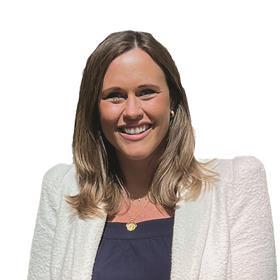But that has changed. It has taken longer than expected but it is now starting to gather momentum. The ongoing conversations surrounding diversity are starting to land. Within the last year, there has been a significant shift in attitudes towards ensuring teams are diverse. This is because industry leaders are leading by example. They are choosing to partner and work only with other organisations in the sector that can demonstrate a significant level of diversity within their teams.
The recruitment of females has been high on the agenda and there has been a welcome change backed up by current statistics. In late 2022, Real Estate Balance surveyed 52,000 people within the UK real estate industry including those from leading property firms. Its findings show that overall female representation in our industry now stands at around the 44% mark. At board level, this is 29%. This is a significant change from the 2021 statistics, which recorded a 2% increase on 2018 figures at 15%.
However, the sector must be careful not to run away with the idea that it is nearly there in terms of diversity. There is still a lot of work to do. Most of the clients we work with are getting it right when recruiting with diversity in mind. However, more education is needed around this.
Educating real estate hiring managers to be flexible and open minded is necessary
Hiring for the long term and not the short term is paramount, right through from language within job role specifications to gender parity and colour on candidate lists and ensuring the interview process is fair and proper. Decision-makers within organisations need to use a diverse interview panel and ensure their hiring managers are trained specifically against biased interviewing.
Balance matters
Finding a balance when educating top-level decision-makers on diversity is imperative. These conversations can be highly emotive and can potentially cause a backward slide into old habits if they are not approached carefully. Changing mindsets that are often embedded in years of industry tradition is a challenge.
Thankfully, there are now lots of examples of good practice. Companies can demonstrate where they have changed and are making significant progress in the sector because of their commitment to equity in their teams. If clients cannot demonstrate diversity and inclusion in their teams, it will put their company growth at risk as they are passed over for a rival that can.
Benefits packages can be problematic. Some have not been updated for 20 years. Offering a modern approach to flexible working and paternity and maternity leave will ensure a more attractive offer to current staff, which will help with retention as well as prospective staff.
Certain areas of real estate are more diverse than others. For some roles, we currently have to dig deeper. Educating real estate hiring managers to be flexible and open-minded in their approach is necessary. This includes encouraging them to understand why we should widen the net and look in less traditional job pools for candidates who may have transferable skillsets.
Recruiting needs to be more thoughtful. Job adverts where the wording is inflexible are not inclusive. They should demonstrate flexibility around travel and geography, if possible. Stipulating a set number of hours in the office can be detrimental as the working landscape has shifted. While many of the roles within our sector cannot function entirely remotely, using appropriate language and demonstrating a consideration of modern working practices is important.
To attract diverse candidates into the sector is one challenge; the other is to retain the talent. We must also focus on education at school level across all backgrounds to introduce schoolchildren into the world of property.
Clare Coe and Nina Zeilerbauer are co-founders of real estate recruitment firm Madison Berkeley








































No comments yet